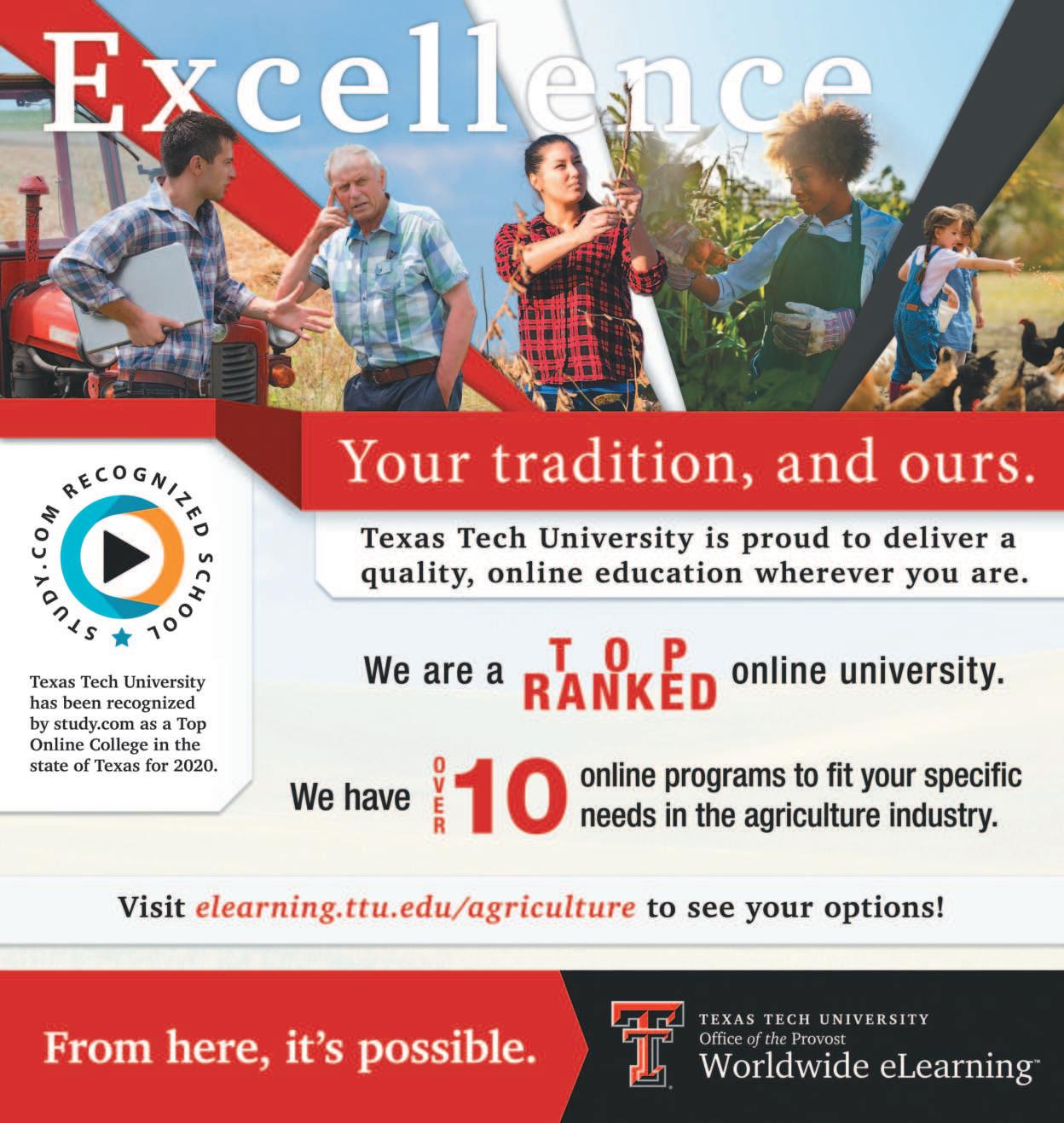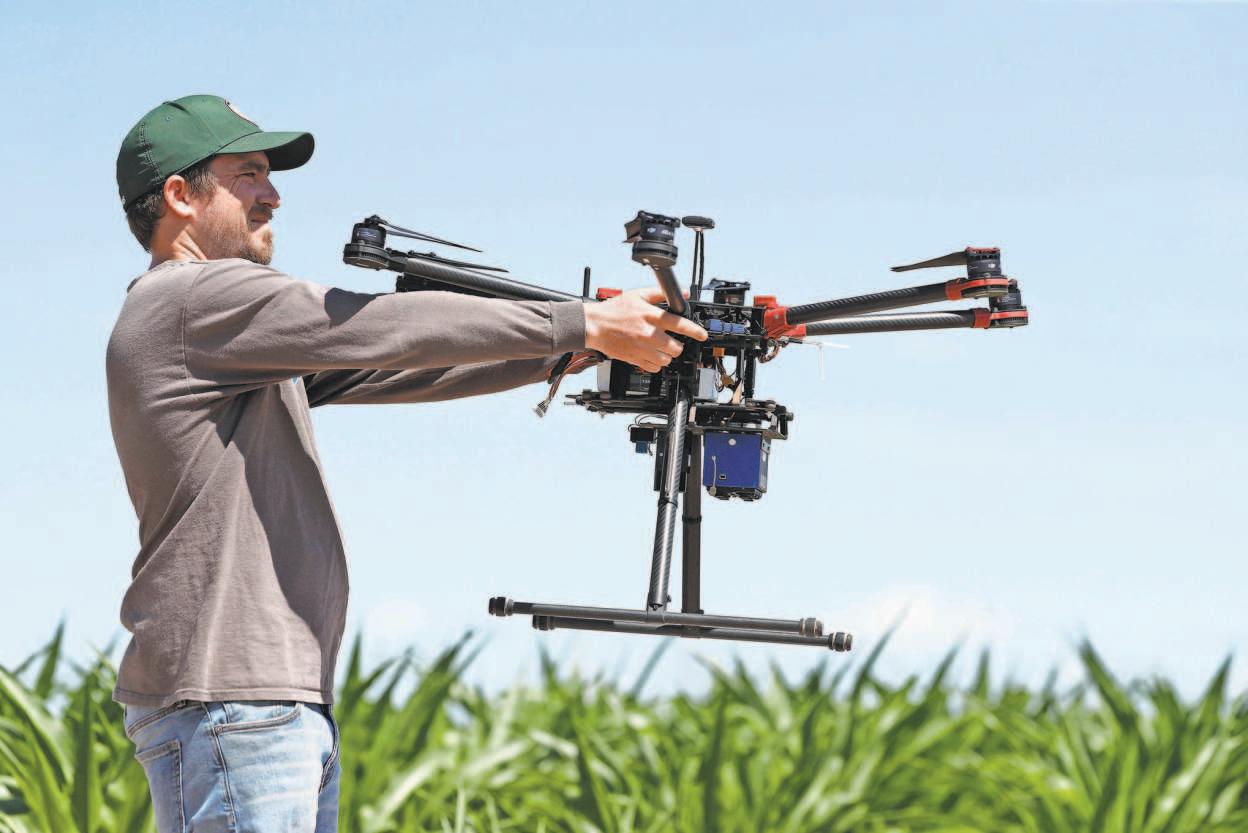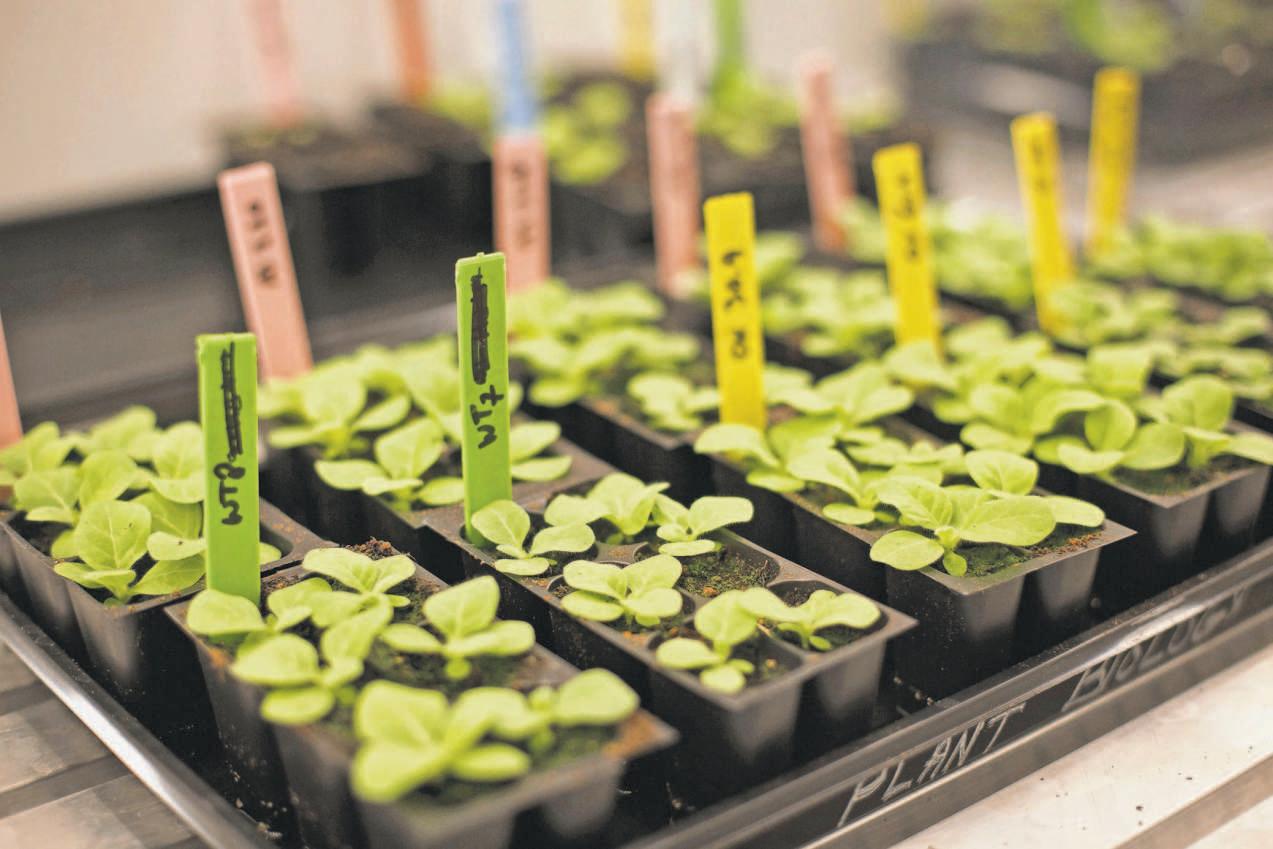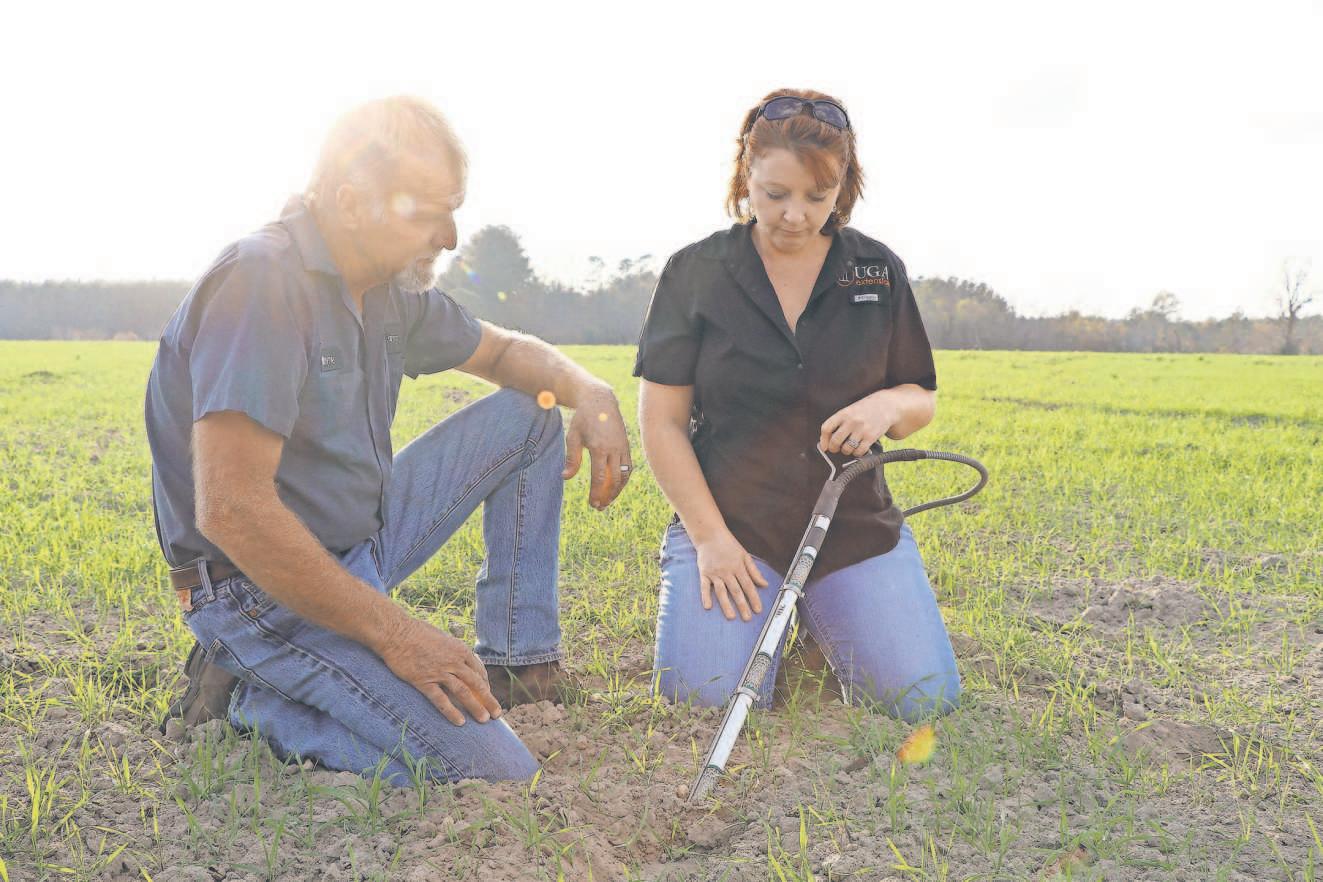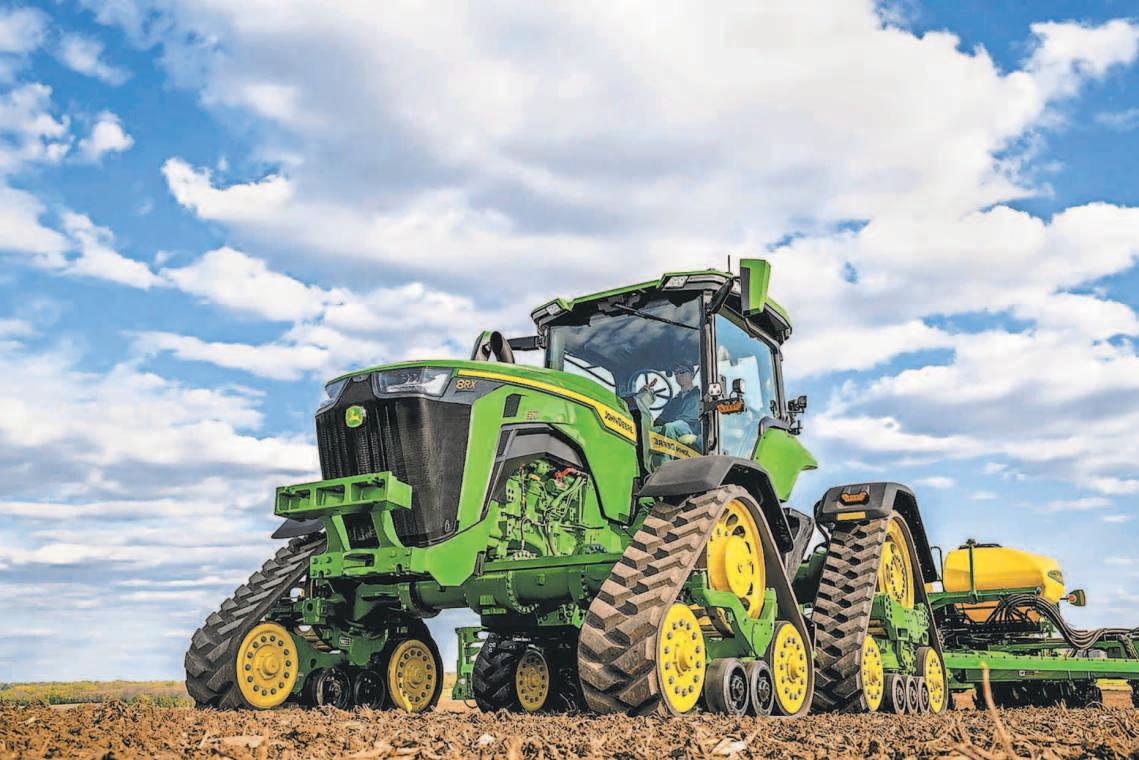
4 minute read
GROWING THE NEXT GENERATION
EDUCATION
National organization fosters hands-on agriscience learning
Advertisement
GETTY IMAGES
By Robin Roenker
KATELYN HILL, A SENIOR at Delaware’s Delmar High School , didn’t grow up on a farm, so it came as a bit of a surprise when she discovered her passion for animal husbandry and agriculture — thanks entirely to her participation in her school’s National FFA Organization program . Delmar High School’s FFA goat program — in which students raise, care for and show goats competitively — has taught Hill responsibility and increased her self-confidence and leadership skills, she said. Plus, it’s
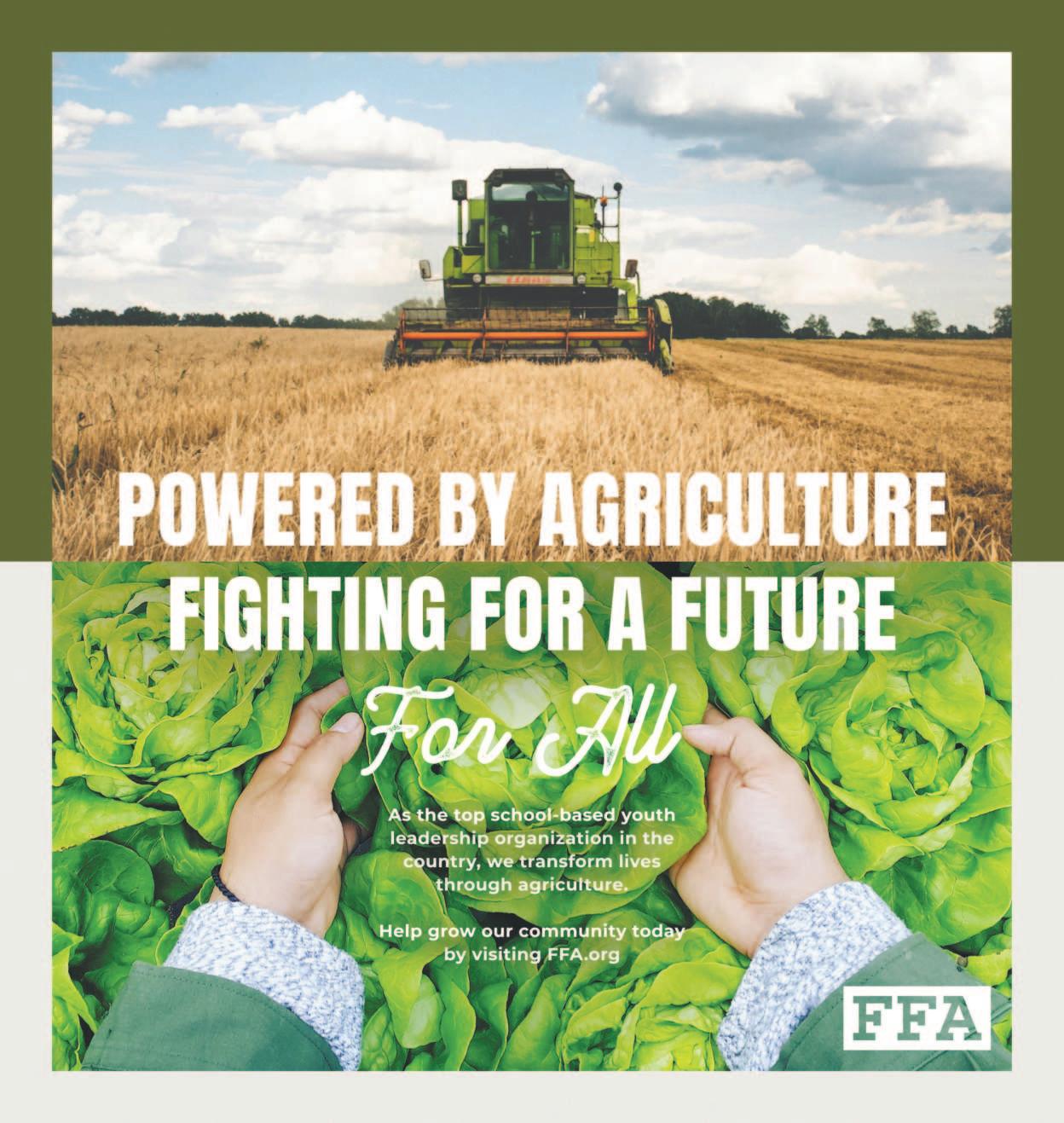
EDUCATION
FFA’s annual convention programming offers networking and information sessions as well as virtual reality and hands-on learning opportunities. NATIONAL FFA ORGANIZATION (2); GETTY IMAGES
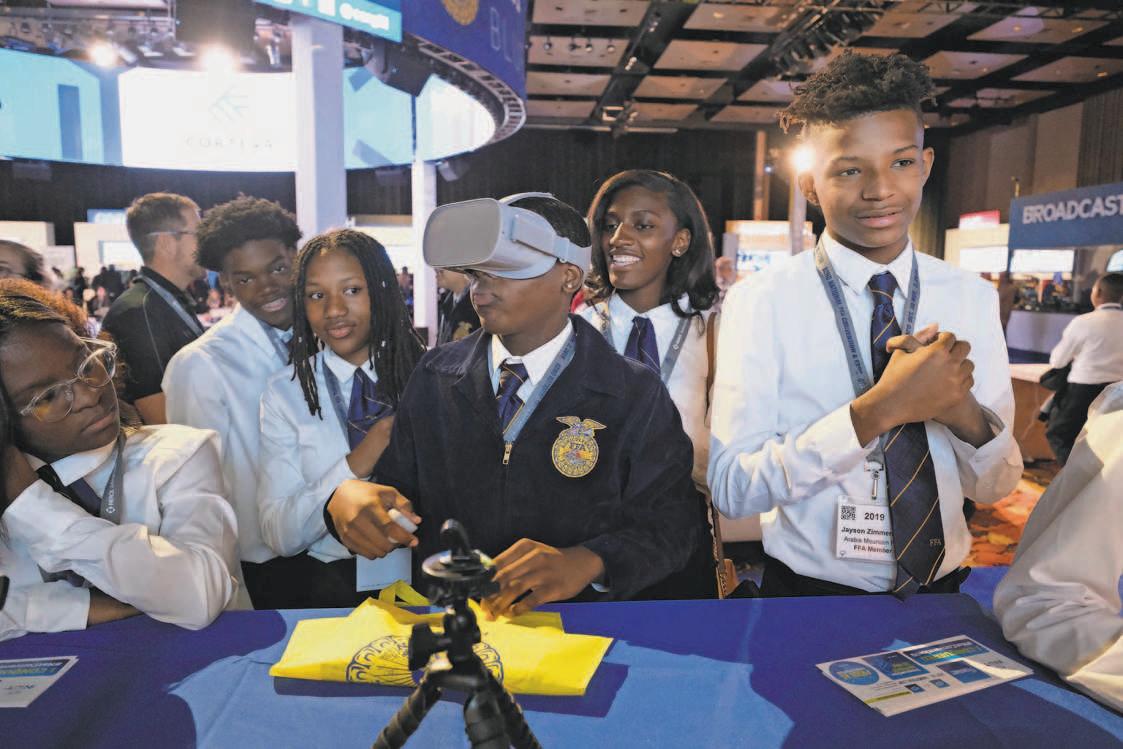
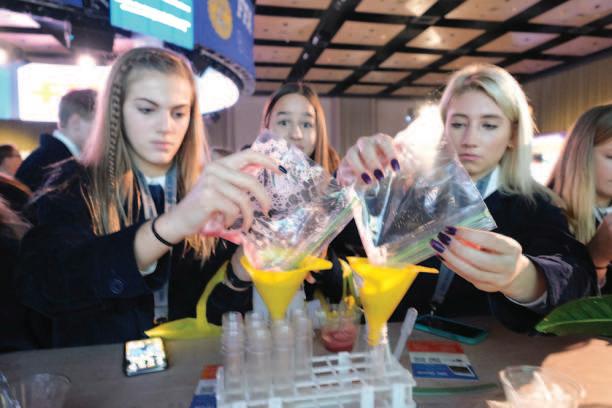
EMBRACING TECHNOLOGY
At the annual National FFA Convention & Expo, held in Indianapolis, students can experience the “Blue Room,” which showcases cuttingedge technology and innovation in agriculture.
Students not able to attend the annual convention can investigate high-tech career paths in agriculture through FFA’s Blue 365 online portal (ffa.org/blue365). “It’s spotlighting experiences that apply in a very relevant way to today’s ag industry,” FFA CEO Mark Poeschl said. Through FFA’s Ag Explorer website (agexplorer.com), students can also learn about dozens of diverse agriculture-centered careers, as well as the education paths required to achieve them.
given her a career focus: She hopes to major in agriculture education at the University of Maryland Eastern Shore this fall.
“I was kind of scared of big crowds, but after showing goats for the first time, it kind of took that nervousness away,” said Hill, who is serving as her school’s FFA chapter president this year. “It just made my confidence come out.” INCREASING DIVERSITY
Launched in 1928 as Future Farmers of America but known since 1988 as the National FFA Organization , today’s FFA embraces students from an array of backgrounds — rural, urban and suburban — who bring with them a broad spectrum of career interests, from traditional production farming to jobs in horticulture, landscaping, veterinary science, ag education, agribusiness, natural resources management and more. “When I came on board with FFA in 2016, our board challenged me to help create FFA of the 21st century,” said CEO Mark Poeschl . “Not only is agriculture changing, but the types of students we’re working with is changing. Technology and innovation are playing such important roles in the overall industry of agriculture.” Today, even students living in America’s largest urban centers have access to both classroom-based and hands-on agricultural education opportunities thanks to FFA.
“We have agricultural education and FFA chapters in 24 of the 25 largest cities in the United States,” Poeschl said. “We’re very proud that 40 percent of our 8,600 FFA chapters are now in urban centers around the country. We’re reaching a much broader audience with our agricultural instruction — and it can be around production, (or) it can be around the science, business and entrepreneurial opportunities that are available in agriculture or ag-related fields.” EMPOWERING STUDENT SUCCESS
Amy Carpenter is an FFA adviser and ag educator at Hudson’s Bay High School in Vancouver, Wash. , an urban school that serves a large percentage of economically disadvantaged youth, many of whom are “in and out of foster care, or in and out of homelessness,” she said.
In 2018, Carpenter launched an FFA program to raise around 20 hens at the school as a way to expose students to agriculture and to give them real-life business experience in marketing and selling excess eggs — beyond what’s donated to the school’s food pantry weekly as a way to combat student food insecurity.
When Carpenter started Hudson’s Bay’s FFA chapter nine years ago, she had around 12 active participants. Now, she has almost 60.
At first, it took some time to educate students and their families that “FFA is not just about farmers,” Carpenter said. “But once we hook the kids, they’re all in. They’re starting to see different career pathways that they never thought about before. Their aspirations are reaching
higher, and educationally, their academics are improving.”
From skills-building opportunities such as supervised agricultural experiences — yearlong, individual, ag-related projects students can complete — to statewide and national competitions and leadership positions at the local, state and national levels, FFA offers students ample platforms to grow their talents in a range of ag-related career fields.
“One of my former students received a communications proficiency award from FFA at the state level and went on to earn his meteorology degree and become our local weatherman,” said Donna Nesbitt, Delmar High’s agriscience teacher and FFA adviser . “We have another student currently working on her master’s in turf and sod management. I have former students working toward their veterinary degrees, one who is working for a local ag chemical company. They’re all over, doing great things.”
“FFA’s mission is preparing the next generation of leaders who are going to change the world,” said Kolesen McCoy, a native of Springfield, Ohio, who is currently serving as FFA’s national president. “A leader can look like a farmer who is out in the field tending to crops or livestock. That can also look like someone in agribusiness, (such as) a person directly involved in the science and chemistry of fungicide or other chemical applications,” said McCoy, who is pursuing a degree in agribusiness and applied economics at Ohio State University. “You name it — from putting food on the table to national security — agriculture is there.” BY THE NUMBERS ATTENDEES AT THE 2019 NATIONAL FFA CONVENTION & EXPO: 68,435
